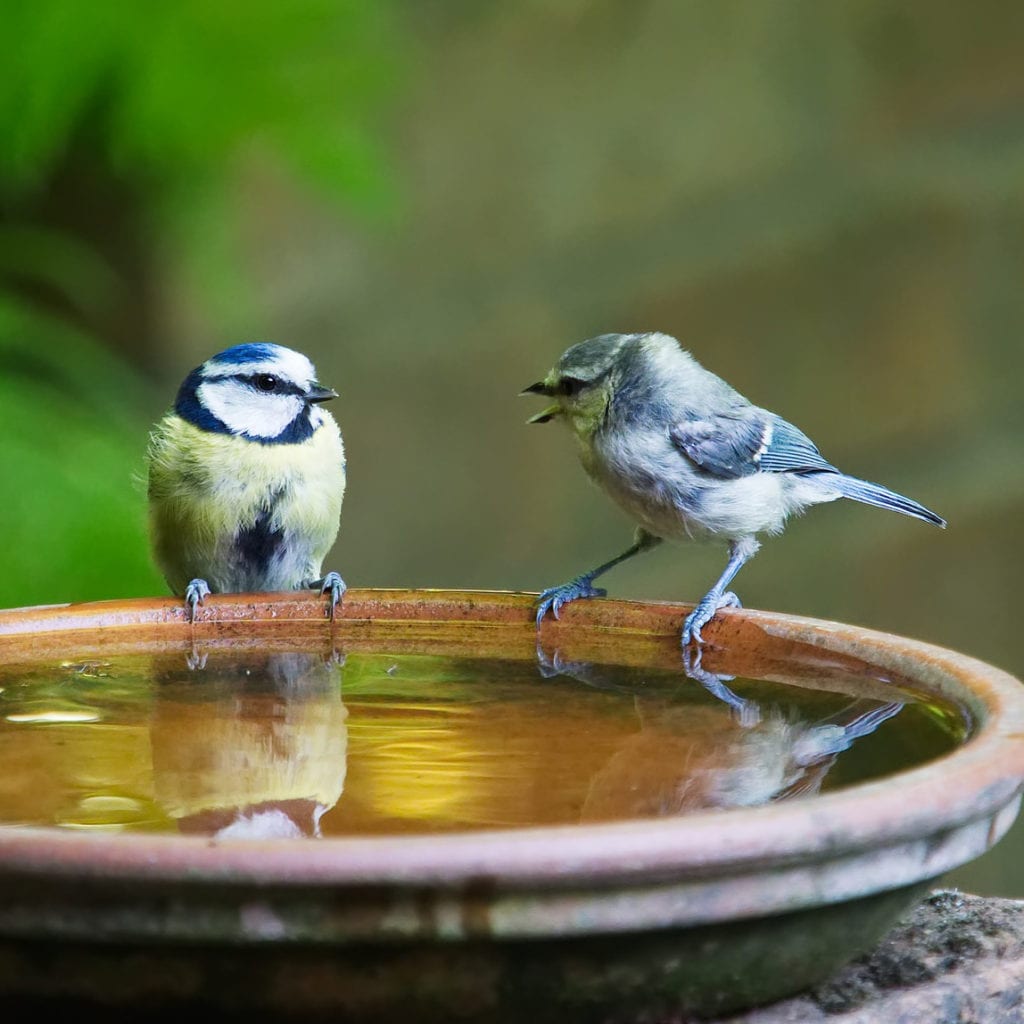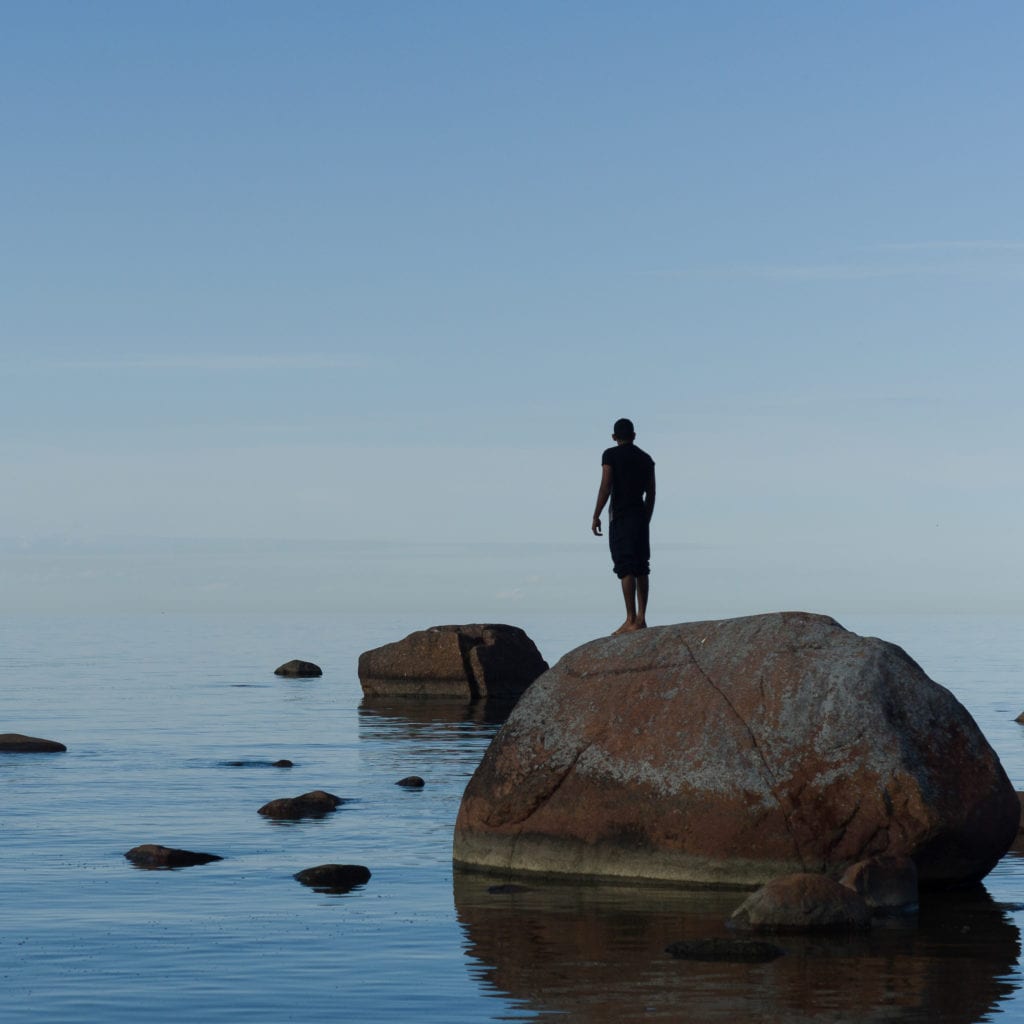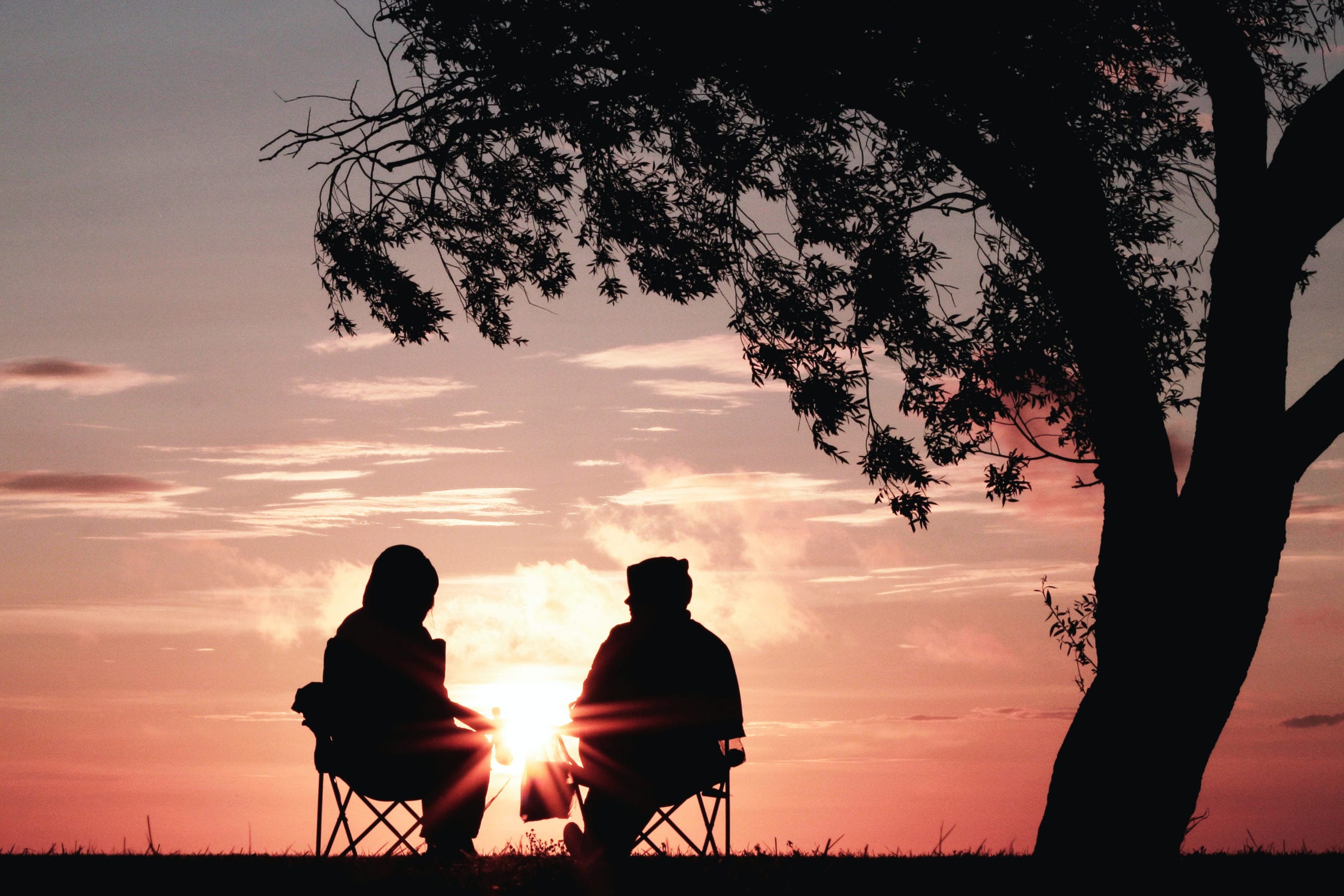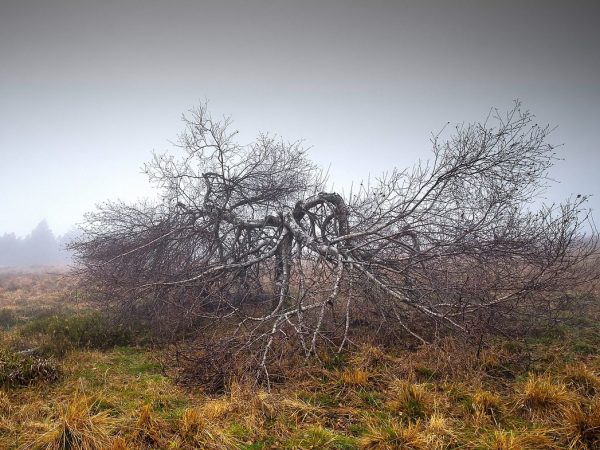Why Climate Conversations Matter
I truly believe after thousands of conversations that I’ve had over the past decade or more that just about every single person in the world already has the values they need to care about a changing climate. They just haven’t connected the dots. And that’s what we can do through our conversation with them.
People are more likely to both believe and follow-up on news and information learned from their trusted friends and family than from any other source.1Pew Research Center, “Friends and Family: Important Drivers of News.” March 20132Axios, “Americans trust their friends, not media or government.” April 2017 According to Dr. Katharine Hayhoe, “The number one thing we can do to break this vicious cycle of denial and conflict around climate crisis is the one thing we’re not doing: talk about it.”3Katharine Hayhoe November 2018

Having these discussions skillfully with others, and particularly with those who may not agree with us, is part of our engaged practice. Listening deeply and sharing our vulnerability, without moralizing or finger-wagging, we can make connections that can shift hearts and minds. This is action on behalf of the living earth community.
Acknowledging Our Suffering
If we have the power to break this “vicious cycle of denial and conflict,” then what’s stopping us? Clearly, we’re side-stepping these exchanges for a reason… What’s going on here?
The situation we find ourselves in right now makes sense, as uncomfortable as it is. Here are a few things that we see happening when some of us try to talk about ecological crises:
- We can easily go into conversations with an agenda for what we want the other person to do or believe, and we are often unwilling or unprepared for what might happen if that agenda is not met. We often carry the subtle or overt desire for them to behave differently. People can detect that and consequently feel judged and likely defensive.
- We can enter these conversations dysregulated and might be attempting to dissipate our anxiety, instead of staying attuned to our experience while seeking a genuine connection with another human being. We can act out of that dysregulation when we’re speaking to the other. This can present in many different ways: anger, confrontation, dismissiveness, lecturing, overwhelm, shutdown, projection, and more.
- Alternatively, we may try to protect ourselves from the potential discomfort about how we might be perceived, so we only say what we assume will be well-received. In this case, we might have a peaceful conversation, but it might feel incomplete or dishonest.
Mistaken Strategies
The stress we feel, that we may not even recognize, distorts our view. We’re looking for a way out. Sometimes we project that stress onto those around us, and we wind up not seeing them clearly either.
These conversations are challenging, and there are several ways that they can go awry:
- Climate psychologist Renee Lertzman has identified what she calls “the Myth of Apathy” wherein we, as “the concerned few”, wrongly assume that the person we’re talking to just doesn’t care or doesn’t care enough. What flows from this? Judgement, blame, shame, pressure … all communication styles that have the opposite of our intended effect of changing behavior. In reality, our conversation partner are likely to be concerned and confused, perhaps even overwhelmed. But our approach sets us in opposition.
- We might think that this person cares, but doesn’t understand all that’s at stake so we seek to scare them into action. Yet our want to draw attention can easily go too far. Terrorizing one another can lead to overwhelm, anxiety, despair, numbness, or distraction.
- Perhaps anticipating these negative response, we might think that the other person can’t handle the truth, or maybe we just don’t want to bum them out. So we over-emphasize the positive, or sugarcoat, taking the “we can solve this!” approach. But by cheerleading, we can find ourselves stuck in disingenuous happy-talk, inauthentic and even alienated from ourselves.
- Finally, perhaps we don’t actually know what can realistically be done about climate change, so we quickly change the subject.
Rather than falling into one of these traps and risking further alienation from our own hearts and each other, we often choose to remain silent and avoid the situation entirely. At a loss, we at least avoid getting the other person and ourselves distressed and without offering anything authentically helpful.
Start with Awareness
What happens when we experience stress beyond what we can tolerate? We tend to go into the edges of our window [of tolerance]. And on one hand, we might go into a sort of collapse, what’s called a chaotic response, which looks like depression, despair, kind of a shutting down. And on the other side of this window is a more rigid response: denial, anger, rigid. And so when that happens, we actually lose our capacity to be integrated, resilient, adaptive, all those things that we want to be.[…] And so with something like climate change, with every new scientific report, documentary, connecting the dots between what we’re doing and the impact it’s having, it can collectively be pushing us outside of our window of tolerance.
When we understand our own vulnerability and the vulnerability of the person we’re encountering, we can meet both without projection and attachment. The Dharma has so much to offer us here. When we’ve developed the capacity to empathize with and transform our own fear, grief, and anger, we can hold space for that in others as well. We can be guided by sensitivity, a willingness to truly listen, and a desire to respond with clarity and compassion.

Remembering the Three A’s4Project InsideOut, The Three A’s—Ambivalence, Anxiety, and Aspiration—can aid us in developing a new mindset that helps us remain connected and receptive during challenging conversations:
- The situation we’re in leads to anxiety for many, and when we’re anxious or agitated, our neurological capacity for information processing is impaired. Acknowledging and understanding the anxieties of the people around us can help keep it in the present moment and allow us to communicate in a way that allows for more integrated information processing.
- Many people experience a great deal of ambivalence about climate issues; our desires to remain the same compete with our desires to change, and we end up in a double-bind that feels irreconcilable. If we listen for these when speaking with others, we can validate with empathy and engage in creative problem solving together.
- This last one points to our aspiration to live in integrity with our values, to be the best version of ourselves that we can. According to Project InsideOut, “When we signal ‘bright spots,’ we activate aspiration within ourselves and remind one another that what we are doing is a step forward. The key is to do this in the context of the other A’s so we are not only focusing on aspiration — We must aspire to address them all in our interactions.”5Project InsideOut, A Playbook for Difficult Conversations
Build Connection
People heal and make change when they feel supported, understood and challenged.
When we can listen for all of these in those we speak with, we can weave them all together and remain empathically attuned and connected to ourselves and the people around us. Eventually, rather than avoid conflict, we can explore it openly with others with sensitivity and care, and without making any enemies.
Wise speech is a discipline, and we must approach climate conversations with this practice: really listening, asking clarifying questions, opening yourself to this other person’s truth, and finding the places where you’re both angry, you’re both afraid, you’re both confused, while holding space for it all.
Perhaps to get started, you might try this out with some friends. In low stakes scenarios, we can work out fledgling skillful conversation muscles, building up our toolkits, and learning to be with the unexpected. We will likely never do this perfectly, but practicing can build confidence and skill. See our interview with Chas DiCapua, Breaking Climate Silence, for more discussion of how we can bring wise speech to climate conversations.
It’s exceedingly important to note here that this is a practice. We almost certainly won’t do this perfectly all of the time. We will likely make mistakes, we will blunder and say things less skillfully than we’d hoped we would, we will continue to have moments of reactivity that grip the heart and lead to pain (whether inwardly or outwardly), we will engage with people that we still aren’t quite sure how to connect with… what matters is that we remain willing to learn from our interactions and keep striving on. When we remain open and teachable, we are on the path. Our hearts get closer and closer to shedding the layers that keep us separated. We can forgive ourselves, make amends when necessary, and keep trying.
Seed a Shift
When people are not filled with unexamined reactivity, their activism looks different, feels different, and is less attached and more durable. We need support from each other to get there and it won’t happen in one or even just a few conversations.
There’s something special about signaling to each other that it’s possible to not be in denial and simultaneously to not be running away from our pain. We can demonstrate that it’s possible to feel our suffering deeply while not reacting from it. When we hold space for others to come to terms with their feelings and find out how their own hearts feel called to respond, this is how culture begins to shift.
Support for Your Practice
This is a practice, one that can develop with attention. Here are some resources to support your conversation practice:
- Renee Lertzman’s TED talk How to Turn Climate Anxiety into Action.
- Dave Braun interviews Chas DiCapua on wise speech in climate conversations: Breaking Climate Silence.
- Ro Randall on the unconscious dynamics of how we talk about climate change.
- Project InsideOut’s ‘Playbook for Difficult Conversations’, linked on their resource page.
- Margaret Klein Salamon’s climate awakening conversations.
- Mallika Dutt’s resources on Generative Conflict are extremely valuable. Also see her presentations on Learning Presence and Connection (also titled “From Burnout to Self-Awareness”), The 4 Skills of Deep Listening, and Creating a Culture of Care and Well-Being.
- Heather Plett on holding space. While not all of this will be applicable to skillful conversations, there are some helpful reminders in this piece and in Heather’s follow-up pieces, linked at the bottom of the page.
- Oren Jay Sofer on “How to Stop Arguing” and some guided practices to help with mindful communication.
References
- 1Pew Research Center, “Friends and Family: Important Drivers of News.” March 2013
- 2Axios, “Americans trust their friends, not media or government.” April 2017
- 3Katharine Hayhoe November 2018
- 4Project InsideOut, The Three A’s
- 5Project InsideOut, A Playbook for Difficult Conversations







